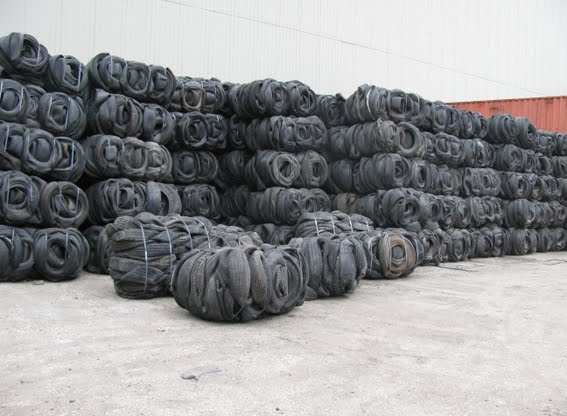When business owners or recycling center managers consider dealing with mountains of waste tires, the first question that often pops into their minds is: “How much does a tire baler cost?” This is a very crucial and practical question, but the answer isn’t a simple number. The price of a tire baler is like that of a car, ranging from economical family sedans to luxurious professional SUVs; the price range is quite wide. So, what factors ultimately drive the price of this equipment?
First, the equipment’s processing capacity and the final bale size are key pricing factors. Do you need a small recycling point processing car and motorcycle tires, or a large processing center handling giant truck and construction machinery tires? Balers designed for small tires have relatively smaller hydraulic system pressure and housing sizes, making them more affordable. Large tire balers, capable of compressing giant tires into dense blocks, require more powerful engines, stronger steel, and more precise manufacturing processes, significantly increasing investment costs.
Second, the level of automation directly impacts labor costs and efficiency. Semi-automatic equipment requires some manual operation, such as feeding and removing bales, but its advantage is lower initial investment. Fully automatic Scrap Tire Hydraulic Balers, equipped with conveyor belts, automatic strapping systems, and even robotic stacking devices, have a higher purchase cost. However, they enable uninterrupted production, significantly reducing labor requirements and increasing overall output. From a long-term operational perspective, their return on investment may be more advantageous.

Furthermore, brand, core component configuration, and after-sales service are also key factors influencing price. A reputable brand typically offers more reliable stability, durability, and safety, reflecting higher R&D and quality control costs. Whether the hydraulic pumps, valves, motors, and electrical control systems used in the equipment are sourced from well-known suppliers directly determines the equipment’s lifespan and failure rate. Finally, whether the manufacturer provides installation and commissioning, technical training, long-term warranties, and timely spare parts supply—these intangible service values also contribute to the final price. Therefore, when asking “how much does one unit cost?”, it’s wiser to assess your own needs, then inquire with multiple suppliers, comparing their cost-effectiveness and comprehensive service capabilities.
Usage:It is mainly used for scrap tires, truck tires,OTR tires and rubber compression packaging.
Scrap Tire Hydraulic Balers Features:This machine is specialized in tires compress and baling.
Hydraulic pressure open the door, two cylinders, manual valve operate, durable and reliable.
Mobile and Stationary type double Anti-kickback devices.
Front & Back opening doors for convenient strapping and bale ejecting
Nick Machinery’s waste tire processing equipment has small investment, quick profit, and very simple actual operation. It is the first choice for your equipment project.
https://www.nkbaler.com
Email:Sales@nkbaler.com
WhatsApp:+86 15021631102
Post time: Nov-05-2025